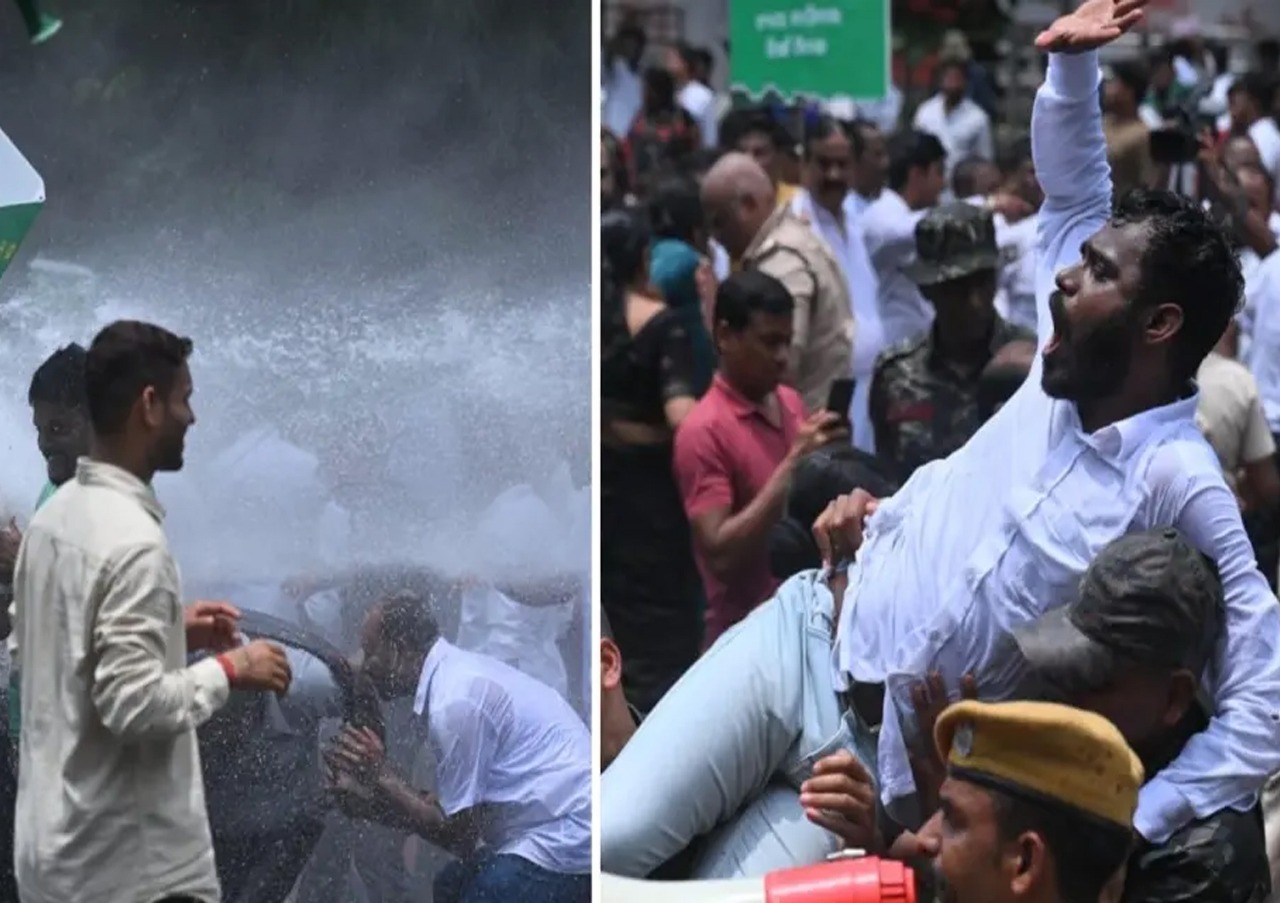
Police deploy tear gas and water cannons as opposition parties demand a judicial probe into the tragic incident.
Bhubaneswar witnessed intense protests outside the Odisha Assembly on Wednesday morning as hundreds of demonstrators gathered to demand justice for a 20-year-old college student who died after setting herself on fire over alleged sexual harassment by her department head.
The student, who was pursuing a B.Ed degree at Fakir Mohan Autonomous College in Balasore, sustained 90% burns and died at AIIMS Bhubaneswar on Monday night after fighting for her life for three days. She had set herself ablaze on the college campus on Saturday, following what her family and fellow students describe as prolonged harassment by her department head, Sameer Kumar Sahoo.
Police forces deployed tear gas shells and water cannons to disperse the crowd as protesters attempted to break through barricades near the state secretariat. Security was significantly heightened at key government buildings, including Lok Seva Bhavan, Rajiv Bhavan, and Kharavela Bhavan, in the capital city.
The Biju Janata Dal (BJD), now in opposition, organised an eight-hour bandh in Balasore district while also staging protests at the assembly. BJD workers burned tyres on roads across multiple locations, including Jaleswar, Basta, Soro, Baliapal, and Bhograi, expressing anger over what they termed government "inaction" that led to the tragedy.
Opposition parties are demanding the resignation of Chief Minister Mohan Charan Majhi and Higher Education Minister Suryabanshi Suraj, accusing them of failing to provide justice to the student. A broad coalition of opposition parties led by Congress has also called for a statewide bandh on Thursday, July 17.
"People are very angry over the denial of justice to the student who ultimately set herself on fire and died," said BJD leader Debi Prasad Mishra. "The party will continue the agitation across the state till the BJP government announces a judicial probe into the incident."
According to students and college sources, the victim had been visibly distressed for weeks due to repeated harassment by Sahoo, who allegedly made inappropriate demands and threatened academic consequences if she didn't comply. Her complaints to the college administration reportedly went unaddressed, leading to her desperate act.
Both the accused department head, Sameer Kumar Sahoo and the college principal, Dillip Kumar Ghosh, have been arrested following the incident. The principal has also been suspended from his position.
The University Grants Commission (UGC) has formed a four-member fact-finding committee led by Professor Raj Kumar Mittal to examine the circumstances surrounding the incident. The committee will assess the college's compliance with UGC regulations on preventing sexual harassment and evaluate the effectiveness of grievance redressal mechanisms.
The panel has been tasked with conducting an on-site assessment to verify the actual implementation of safety measures for female students and will meet with stakeholders, including students, faculty, and support staff. The committee must submit its findings within a week.
This tragic incident has once again highlighted the urgent need for effective implementation of anti-harassment policies in educational institutions. The case underscores the critical importance of robust grievance mechanisms and prompt action by authorities when complaints are raised.
As protests continue across Odisha, the incident serves as a stark reminder of the vulnerability of students in educational settings and the devastating consequences when institutional safeguards fail to protect them from harassment and abuse.
The state government faces mounting pressure to ensure not just justice for the victim but also systemic reforms to prevent such tragedies in the future.